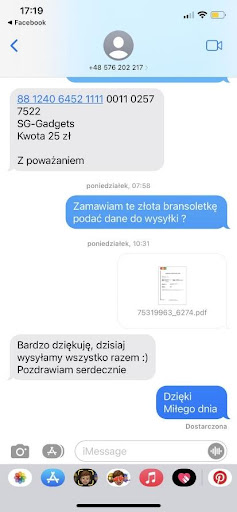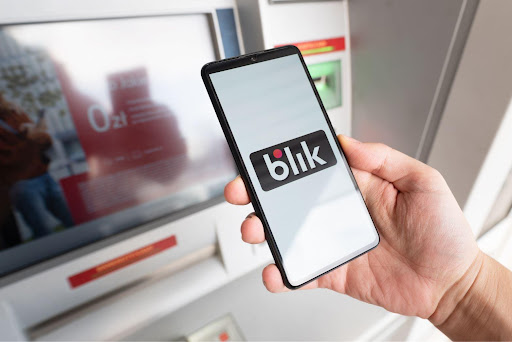Content
It would seem that today, with the help of artificial intelligence, you can quickly localize any commercial website. What could be easier – pasting the text into a translation service, then into a grammar checking application, and then into an SEO evaluation program. This will take a maximum of 10 minutes. But those who have already tried to follow this path can confirm that in fact not everything is so simple. In most cases, it is better to order copywriting in the desired language or professional translation of the content. Why? Let’s take a closer look at what exactly should be taken into account when localizing a commercial website in Polish.
How do Ukrainians get acquainted with extralinguistic reality?
Since the beginning of the full-scale war, many Ukrainian companies have reoriented themselves to the European market. And most of them chose the closest countries, close in common history, language and mentality, primarily Poland.
It would seem that the path to success is straight, without unexpected turns and obstacles. It is easy to translate websites, brochures and advertising materials into Polish, especially since many Ukrainians know it. But it turned out that a perfect translation is not enough.
To conduct business in another country, you need to know not only the language, but also extralinguistic reality. This complex term means a set of local traditions, habits, mentality and cultural phenomena. So, what obstacles has Ukrainian business faced in Poland?
Politeness or rudeness?
The Polish language has many linguistic constructions that allow you to show respect for your interlocutor. For example, the famous “bardzo dziękuję”, that is, “thank you very much,” can be found in almost all dialogues with clients – both when ordering pizza and in negotiations on the supply of industrial equipment. Words and phrases such as “proszę”, “dzień dobry”, “сześć” and others are used automatically by Poles.

The usual Ukrainian “thank you” in written and oral communication with Poles is usually not enough. They often perceive such minimal politeness without verbose gallantry as rudeness. Would you return to a store or cafe where you were not treated very respectfully? Hardly. Therefore, it was necessary to accurately translate the Ukrainian phrase – you need to know how to please a native speaker of a foreign language.
Culture and history as symbols of the nation
During the full-scale war in Ukraine, a specific socio-cultural environment was formed, saturated with symbols, signs, memes, jokes, understandable only to Ukrainians. So, Poles and other Europeans will not understand why children sing a song about the dog Patron, and adults laugh at jokes about cotton or a shark. When localizing a business, it is better to refrain from using such symbols and find adequate replacements for them.
In addition, it is very important to carefully check the cultural and historical background. For example, if for Ukrainians references to the UPA and the red and black flag are symbols of the struggle for independence, for many Poles they evoke negative associations. This is especially true for the older generation, brought up under the Soviet occupation.
We trust our own
According to MasterCard statistics, more than 3/4 of Europeans prefer local businesses. If a company comes to a European country from another region, the natural reaction of most consumers will be to distrust it. When people see unfamiliar names in the contacts section, they immediately imagine communication with a terrible accent, which does not add benefits to a localized business.

Fortunately, Ukrainian names are very similar to Polish ones. And yet, practice shows that the use of names characteristic of this region significantly increases the level of trust in the company. For example, Agnieszka will convert better than Anna. Therefore, when localizing a business, you should pay great attention to the contacts section. If possible, contact a local contractor who will provide customer support services.
Technical nuances
According to surveys in 2023, more than 50% of Ukrainians use the Telegram messenger. It is the main inventory of personal and business communications. People learn news from it, order goods and services from it. But in Poland Telegram’s part is much lower – only 7%! Poles are much more likely to use Facebook Messenger (86%) and WhatsApp (54%). If you leave Telegram as your main contact method during site localization, you will lose more than 90% of potential clients.
The same applies to payment methods. Ukrainians are accustomed to conducting most financial transactions through PrivatBank and Monobank, because it is convenient and fast. Liqpay and Portmone dominate among payment gateways in our country. Theoretically, it is also possible to accept payments in Poland and other countries. You can use the international financial services Payoneer, PayPal, or even leave your IBAN details. But Europeans tend to trust local businesses. Therefore, the best option for Poles would be their own payment service BLIK. By choosing it as your primary payment method, you will significantly increase your conversion rate.

So, what are the conclusions?
Of course, today applications based on artificial intelligence can accurately translate most of the content on a website within a few minutes. But can this be considered a successful business localization? No.
To enter a new market, you should take into account not only language, but also extralinguistic reality. If we take Poland as an example, then, first of all, we should pay special attention to linguistic constructions that allow us to express respect for our interlocutor. In addition, historical and cultural aspects specific to a particular region, people’s habits, and favorite online services and means of communication are important. That is why machine translation can only be an auxiliary tool. In full business localization there is currently no alternative to qualified translators and copywriters.
Author: Natalia Kirik, founder of the content studio WordFactory
Expert in legal marketing. Head of marketing agency MAVR.
Business degree “Master of Business Administration” (MBA).

